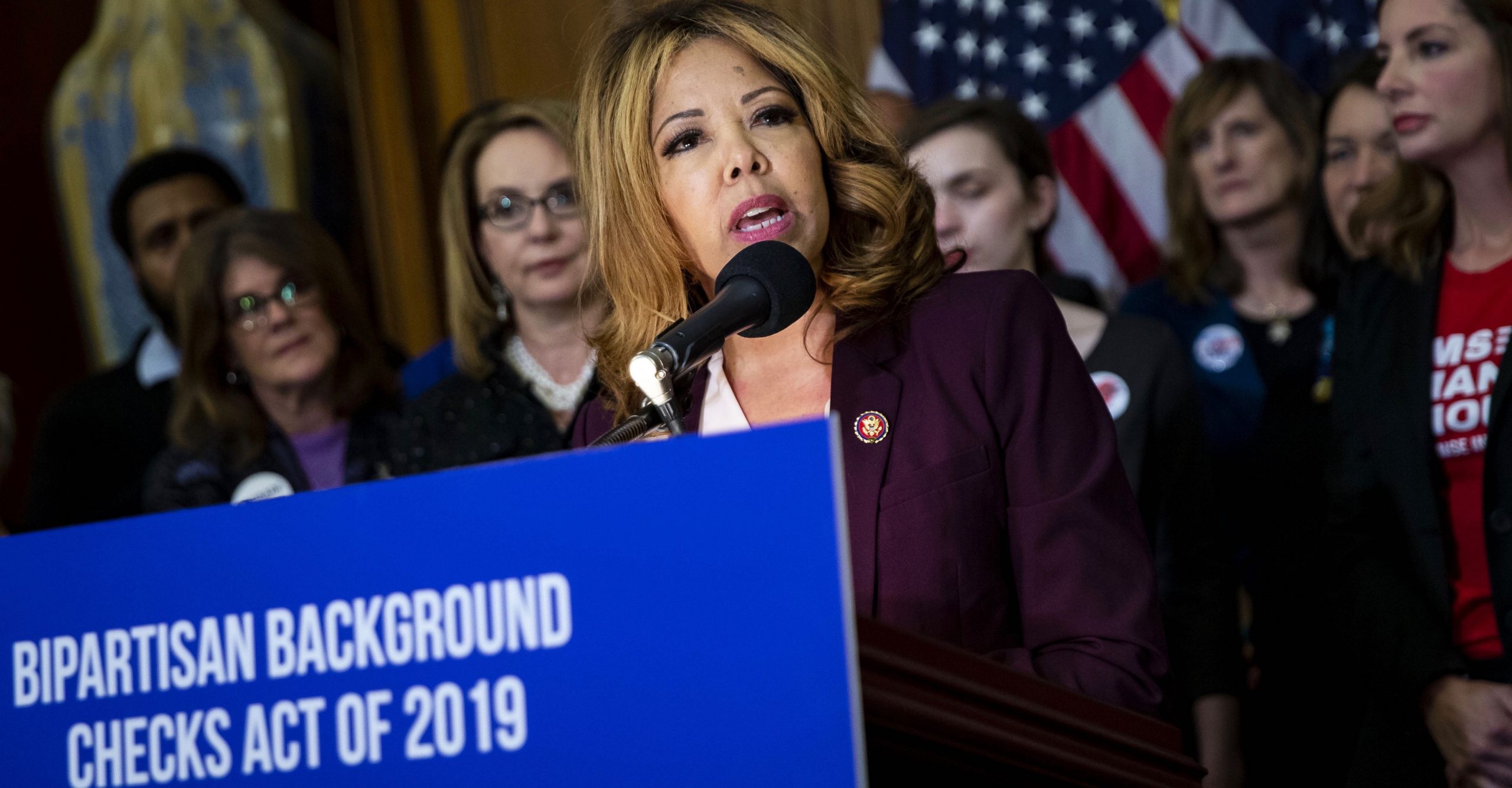Lawmakers in Washington continue to weigh different policy responses to this summer’s string of mass shootings while waiting to see what measures President Donald Trump might endorse. One leading Congressional gun reform that has garnered significant bipartisan support is a proposal to crack down on people barred from gun ownership who attempt to purchase a weapon by lying on a federal background check form.
The practice, known as “lie and try,” is a federal crime, and violates some state laws. The Federal Bureau of Investigation, which conducts background checks in most states, refers a small number of denied checks to the Bureau of Alcohol, Tobacco, Firearms, and Explosives for further investigation. But under current law, the FBI is under no obligation to notify the local law enforcement agencies best suited to quickly investigate the prohibited purchaser.
The NICS Denial Notification Act would require the FBI to alert state and local law enforcement within 24 hours of a prohibited person’s failed attempt to buy a gun.
The bill was introduced by Democratic Senator Chris Coons of Delaware and Republican Pat Toomey of Pennsylvania. It has four Republican co-sponsors — Susan Collins of Maine; Marco Rubio of Florida; David Perdue of Georgia, and Lamar Alexander of Tennessee. An identical piece of legislation was introduced in the House by Illinois Democratic Representative Mike Quigley, and has 14 Republican co-sponsors.
“We have a responsibility, right now, to improve the safety of our communities, our schools, and our families by acting to prevent gun violence,” Coons said in an emailed statement. “In addition to expanding background checks, we can and should pass my bill with Senator Toomey to prevent those who shouldn’t be able to buy a gun from getting one.”
Proponents of the lie-and-try bill argue that it would fix a key shortcoming in the National Criminal Background Check System and could provide law enforcement with a chance to intervene before someone uses a gun to harm themselves or others.
In September, the Texas Department of Public Safety revealed that the perpetrator of the Odessa mass shooting had failed a background check in 2014. He was later able to buy a weapon in a private sale. With the proposed legislation in place, the FBI would have automatically notified local police about the denial.
Currently, the federal government does not pursue many prohibited purchasers who fail gun background checks. In 2017, the FBI denied 112,090 background checks, according to a report published by the Government Accountability Office. The agency referred just 12,710 denials to the ATF for additional investigation. Only 12 of those cases resulted in a prosecution.
That status quo is troubling for the proponents of the new law, because there is evidence that denied purchases are a sign of future criminal behavior. One internal ATF analysis looking at the years between 1998 and 2006 found that between 10 to 21 percent of people investigated by the ATF after a denied background check went on to be arrested for another gun crime. The recidivism rate is even higher for those denied a gun sale because of their criminal history, according to a 2008 study commissioned by the Department of Justice, which found that people with felony histories were 28 percent more likely to be arrested in the five years after a check than in the five years before.
In an effort to fix this lax federal investigation and enforcement, some states have stepped up to scrutinize people who try to buy guns despite prohibiting criminal records. Virginia and Pennsylvania are two of the handful of states that have directed their state police to investigate denied gun purchases. Both are also “point of contact” states, in which the state police, not the FBI, conducts firearm background checks, so authorities automatically know who is trying to buy a gun. Thirteen states conduct their own background checks on all gun sales and transfers, while seven more perform checks on handgun sales only. In the 30 remaining states, where dealers get all background check results directly from the FBI, local police don’t necessarily know anything about attempts by prohibited purchasers to get firearms.
While the new legislation would seek to overcome this patchwork system, some experts question whether it would have the desired impact, since it doesn’t include any funding to help federal or state authorities create a system for intelligence sharing.
“The bill is well meaning, but absent funding and some responsibility for the feds to make it work, it’s going to fall short of producing positive outcomes out of the box,” said David Chipman, a senior policy adviser at the gun violence prevention group Giffords.


